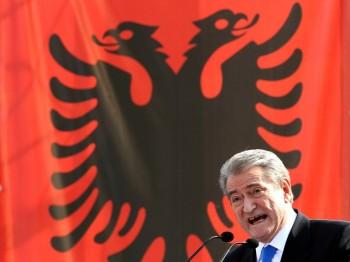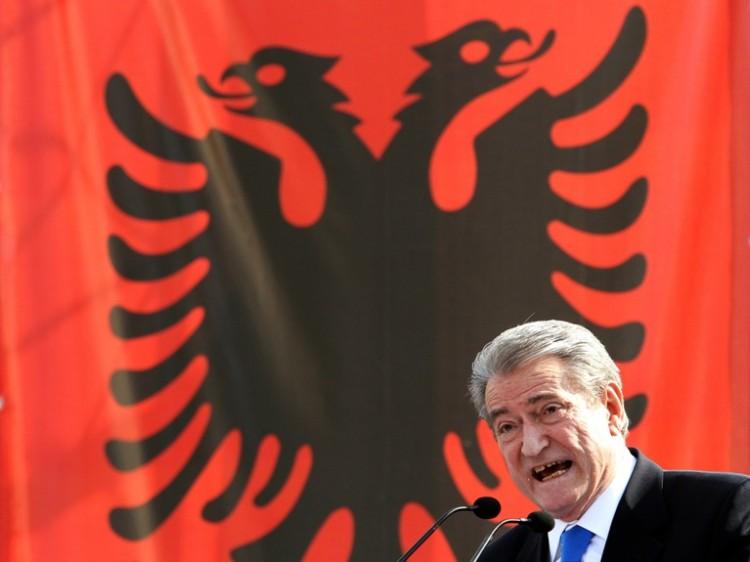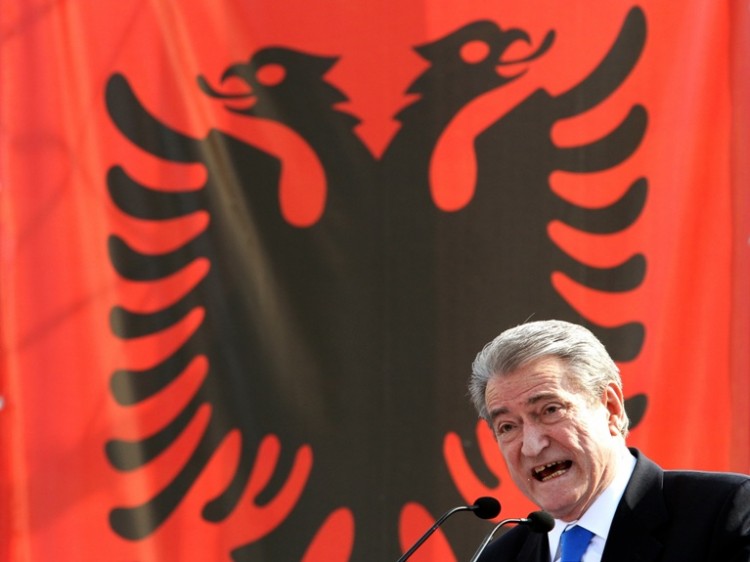The Troubled Flight of the Albanian Double Eagle
Albania is unlikely to join the European Union any time soon, as the small Balkan state remains politically divided, the European Commission said in its latest progress report.

Albanian Prime Minister Sali Berisha speaks to his supporters during a peaceful rally of tens of thousands of pro-government in Tirana Feb. 20. In its report on the country this year, the European Commission said Albania will remain a potential candidate for EU membership. Gent Shkullaku/Afp/Getty Images
|Updated:





